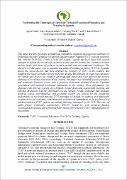| dc.description.abstract | This paper presents the major institutional, community, national, and regional challenges of
promoting effective Technical Vocational Education and Training(TVET) training system in
line with the 2030 SDG 4 with a focus on Uganda. Uganda has been faced with several
attempts to reform the vocational education system and the country has continued to meet
various levels and bases of political social-economic and environmental challenges. The
objectives of the paper was to examine the political challenges facing TVET in Uganda;
assess the social factors that have affected the prospect of TVET in the country, and
establish the major economic factors that have negated the planning of vocational education
in Uganda and discuss the common environmental issues that have affected the success
planning of vocational education of the country, this paper was informed by policy analysis
and systematic literature review with a focus on documents obtained from the Ugandan
government and national vocational institutions in the country. More information was
obtained from internet sources, new bulletin, e-mail discussion experiential learning and
informal discussion with key informants on the subject. Results indicated that enabling
political, social, environmental, and economic factors are critical for the productive
performance of successful national TVET planning in Uganda. In addition, it is imperative
to promote social, economic, environmental, and political commitment at the top level for a
prudent inclusive TVET system, curriculum planning envisaged by the SG4. The roles of
public-private community partnerships (PPCP) should be well planned, funded,
coordinated, motivated, and constantly fully enhanced for effective TVET implementation in | en_US |

